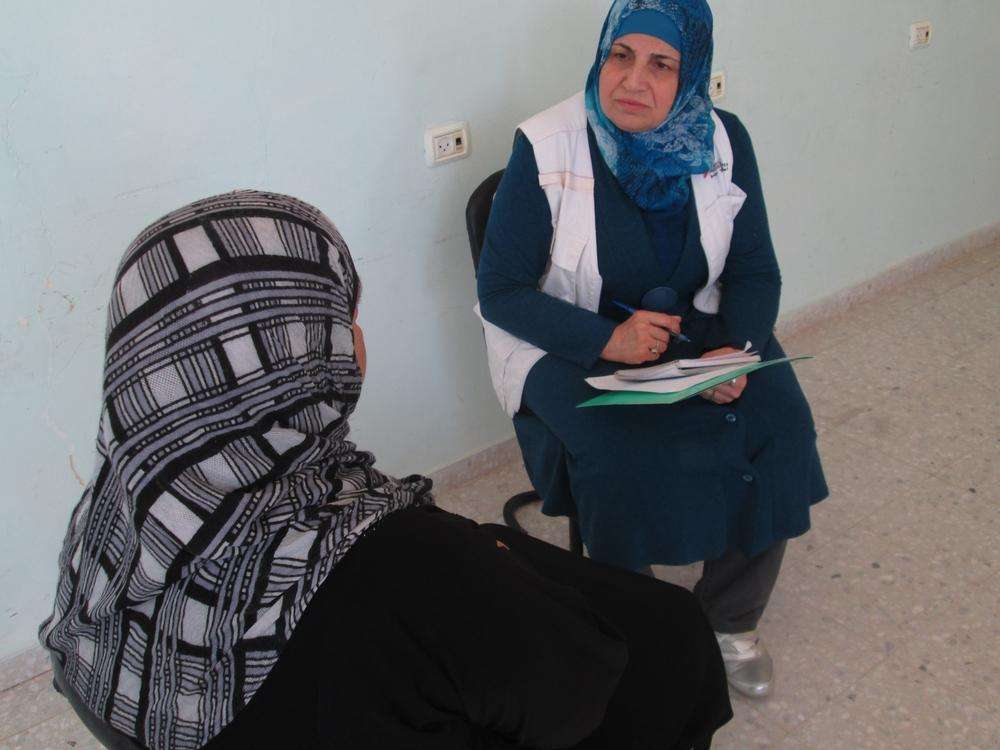In the village of Salem, near Hebron, a Doctors Without Borders/Médecins Sans Frontières (MSF) psychologist named Wissam meets with a woman called Um Taha for the second time. She is 48. Her husband died five years ago and she lives in Salem with her nine children.
Um Taha’s 28-year-old son was recently arrested by the Israeli army. Troops stormed the house one night, beat Um Taha and aimed a gun at her, she says. They also turned the house upside down, destroying everything they found.
Her son was sentanced to prison for seven years. Since his arrest, Um Taha can no longer sleep, has nightmares, and has become depressed. She hopes that talking about her problems with Wissam will help her return to a normal life.
Seventy percent of the population of the West Bank and East Jerusalem, an estimated 2.6 million people, lives in areas under the control of the Israeli army. Approximately 520,000 Israeli settlers have moved into these same areas. Palestinians often bear the brunt of the violence and psychological pressure that the settlements have created.
MSF has operated a psycho-medical-social program in Nablus since 2004. Many of the patients who meet with the MSF teams present with post-traumatic stress syndrome and suffer from acute stress, anxiety, and depression, which affect their daily lives. The techniques that the teams use in therapy are based on conversation, cognitive and behavioral tools, relaxation, play, and drawing. Some illnesses, such as depression and anxiety, require medical treatment as well.
When the session is over, Wissam goes to Jaloud, a small village surrounded by four Israeli settlements. She wants to visit a former patient and her daughter. Um Fawaz is 56, but looks older. She was born in Jaloud, and still lives there. Some militant Israeli settlers make frequent incursions into the village, armed with sticks and sometimes guns. They throw stones at residents' windows and enter houses and threaten residents, frightening them. Violence and intimidation are daily occurrences.
Last May, Um Fawaz’s 13-year-old daughter Soulafa was at school when settlers tried to enter the classrooms. Soulafa and the other children were terror-stricken. “Luckily, the teachers locked the school doors and the settlers left after a little while," Um Fawaz says. “But now I’m always afraid for my daughter when she goes to school.”
After talking for a few minutes, Um Fawaz wants to show Wissam the olive grove below the village. The settlers burned 10 trees a few days ago. They want the Palestinians to leave their houses and land. Um Fawaz will not leave. The price for her decision is living in fear and insecurity every day.
An MSF psychologist (assisted by a doctor and a social worker) treated her for six months, providing her an opportunity to talk about her suffering and learn to cope better with the violence that seems difficult, if not impossible, to escape. Through these sessions, MSF is trying—in spite of everything—to restore an acceptable level of physical and psychological health.
In addition to the Nablus program, MSF also operates psycho-medical-social programs in Hebron and East Jerusalem. MSF has been working in the occupied Palestinian territories and in Gaza since 2000.




